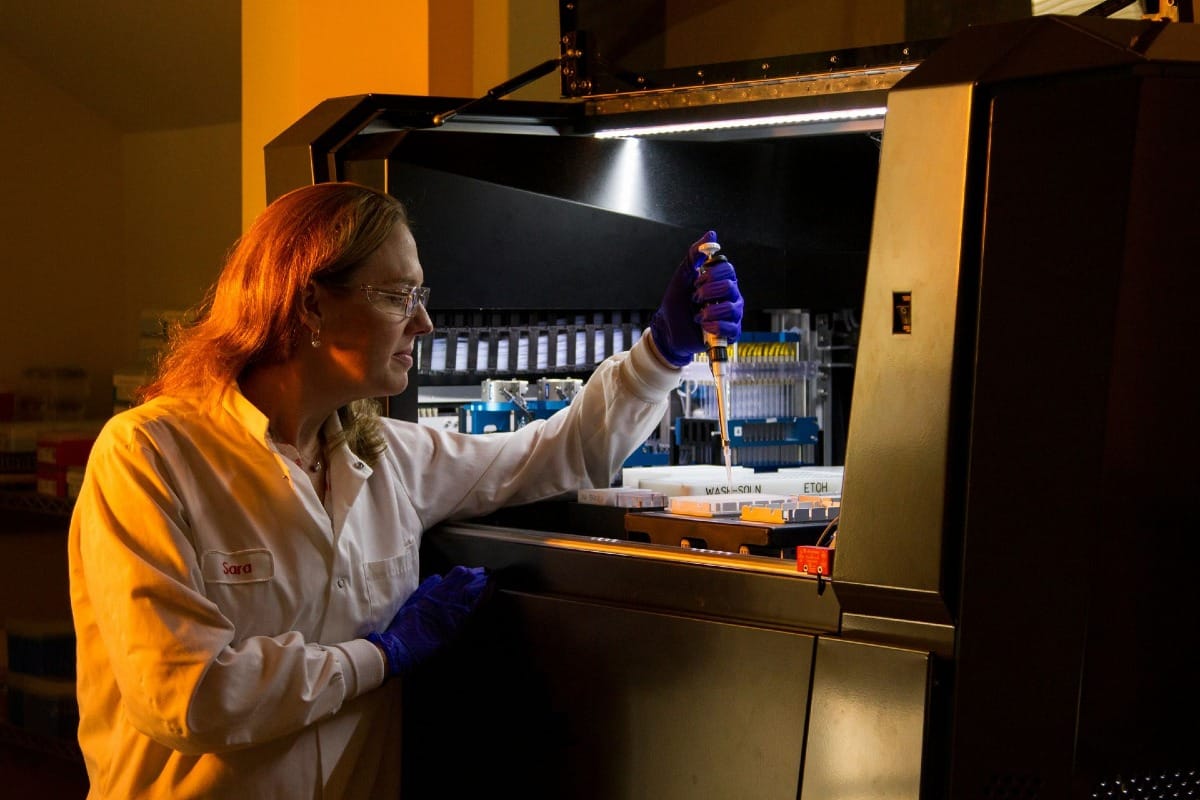Epigenetics is revolutionizing our understanding of health and wellness. Recent research shows that simple lifestyle changes can actually alter how our genes are expressed, potentially improving our health and longevity. This article explores practical "epigenetic hacks" that anyone can implement to optimize their genetic potential.
Key Takeaways:
- Diet, exercise, stress management, and sleep quality can influence gene expression
- Certain foods like cruciferous vegetables and berries may have positive epigenetic effects
- Regular physical activity can beneficially alter DNA methylation patterns
- Stress reduction techniques like meditation may help maintain healthy gene expression
- Consistent, quality sleep is crucial for proper epigenetic regulation
- Environmental factors like pollution exposure can negatively impact the epigenome
Our genes are not our destiny. While we can't change our DNA sequence, exciting new research in the field of epigenetics shows that we have more control over how our genes are expressed than previously thought. Through simple lifestyle changes, we may be able to "hack" our epigenome - the collection of chemical compounds that tell our genes what to do.
What is Epigenetics?
Epigenetics refers to changes in gene activity that don't involve alterations to the DNA sequence itself 1. Instead, epigenetic modifications act like switches, turning genes on or off. This process is influenced by various environmental and lifestyle factors.
Dr. Kevin Moore, Head of Markets and Applications at Tecan, explains: "Epigenetic changes are not of the 'classical' genetic kind, caused by mutations in genes, but arise instead from changes in regulation that switch genes on or off without changing the underlying DNA sequence." 1
Diet and Nutrition
What we eat can have a profound impact on our epigenome. Certain foods and nutrients have been shown to influence epigenetic markers:
Cruciferous Vegetables
Vegetables like broccoli, cauliflower, and Brussels sprouts contain a compound called sulforaphane. Research suggests sulforaphane may have beneficial epigenetic effects: "Eating vegetables containing sulforaphane may change your genes... Sulforaphane induces a protein called Nrf2, which has beneficial antioxidant and detoxifying effects." 2
Berries and Other Antioxidant-Rich Foods
Berries, leafy greens, and other foods high in antioxidants may help protect DNA from damage and support healthy gene expression 3.
Folate-Rich Foods
Folate, found in leafy greens, legumes, and fortified grains, plays a crucial role in DNA methylation - an important epigenetic process 3.
Omega-3 Fatty Acids
Found in fatty fish, walnuts, and flaxseeds, omega-3s may help regulate gene expression related to inflammation and metabolism 3.
Physical Activity
Regular exercise doesn't just build muscle and burn calories - it can actually change how our genes behave. A study on the epigenetic effects of exercise found that "after three months, the researchers compared muscle biopsy samples from active and less active legs and found that exercise changed DNA methylation and gene expression." 2
The type, intensity, and duration of exercise can all influence these epigenetic changes. Even moderate activity like brisk walking can have positive effects 4.
Stress Management
Chronic stress can negatively impact our epigenome, potentially increasing risk for various health issues. Implementing stress reduction techniques may help maintain healthy gene expression:
Meditation and Mindfulness
Regular meditation practice has been linked to positive changes in gene expression related to inflammation and stress response 5.
Yoga
Like meditation, yoga may help reduce stress-related epigenetic changes 5.
Social Connections
Maintaining strong social bonds and a supportive community can buffer against stress-induced epigenetic alterations 5.
Sleep Quality
Getting enough high-quality sleep is crucial for proper epigenetic regulation. Poor sleep patterns have been associated with negative changes in gene expression related to metabolism, inflammation, and circadian rhythms.
Aim for 7-9 hours of sleep per night and maintain a consistent sleep schedule. Creating a relaxing bedtime routine and optimizing your sleep environment can also support healthy epigenetic patterns.
Environmental Factors
Our environment plays a significant role in shaping our epigenome. While we can't control all environmental exposures, being aware of potential impacts can help us make informed choices:
Air Pollution
Exposure to air pollution has been linked to epigenetic changes associated with increased inflammation and oxidative stress.
Endocrine Disruptors
Certain chemicals found in plastics, pesticides, and personal care products may disrupt normal epigenetic processes.
Toxins
Exposure to heavy metals, tobacco smoke, and other toxins can negatively impact the epigenome.
Minimizing exposure to these environmental factors when possible and supporting the body's natural detoxification processes through diet and lifestyle choices may help protect the epigenome.
The Power of Consistency
While individual healthy choices can influence gene expression, the real power lies in consistent, long-term habits. Dr. Jorge Alejandro Alegría-Torres and colleagues note: "Epigenetics is expected to help explaining how gene expression is modulated by lifestyle and environmental factors, and to bring a more complete understanding of individual responses to environmental cues and acquired risk factors." 4
Making small, sustainable changes to diet, exercise habits, stress management techniques, and sleep patterns can add up to significant epigenetic benefits over time.
Conclusion
The emerging field of epigenetics offers an empowering perspective on health and wellness. By making simple lifestyle changes, we have the potential to influence how our genes are expressed, potentially reducing disease risk and promoting longevity.
While more research is needed to fully understand the complex interplay between lifestyle factors and epigenetics, the current evidence suggests that adopting healthy habits can have profound effects at the genetic level. By taking control of our diet, exercise routine, stress levels, and sleep quality, we may be able to unlock our full genetic potential and pave the way for a healthier future.
Remember, it's never too late to start making positive changes. Every meal, workout, meditation session, and good night's sleep is an opportunity to support healthy gene expression and optimize your wellbeing.
Citations:
[1] https://www.tecan.com/blog/epigenetics-adding-a-new-layer-to-health
[2] https://hal.science/hal-02423191/document
[3] https://www.cdc.gov/genomics-and-health/about/epigenetic-impacts-on-health.html













Member discussion